How To Find a Piano Teacher: What to Ask and Average Cost
Searching for piano lessons? Learn how to find the right piano teacher for you or your child. Tips on where to look, questions to ask & what makes a good fit.
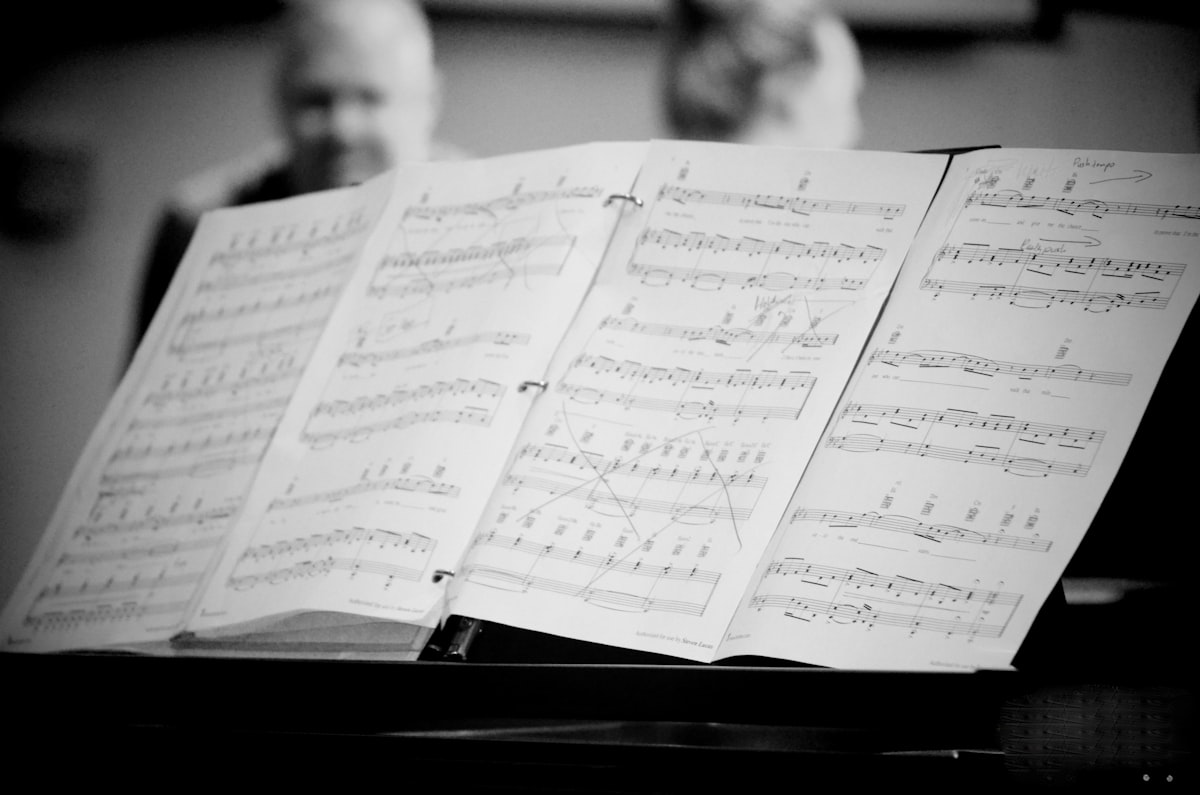
When you call a piano teacher for the first time, what do you ask? Usually, the first two questions people ask are:
- How much are the lessons?
- What time slots do you have open?
Valid questions, of course!
But they shouldn't be the first questions you ask your prospective piano teacher.
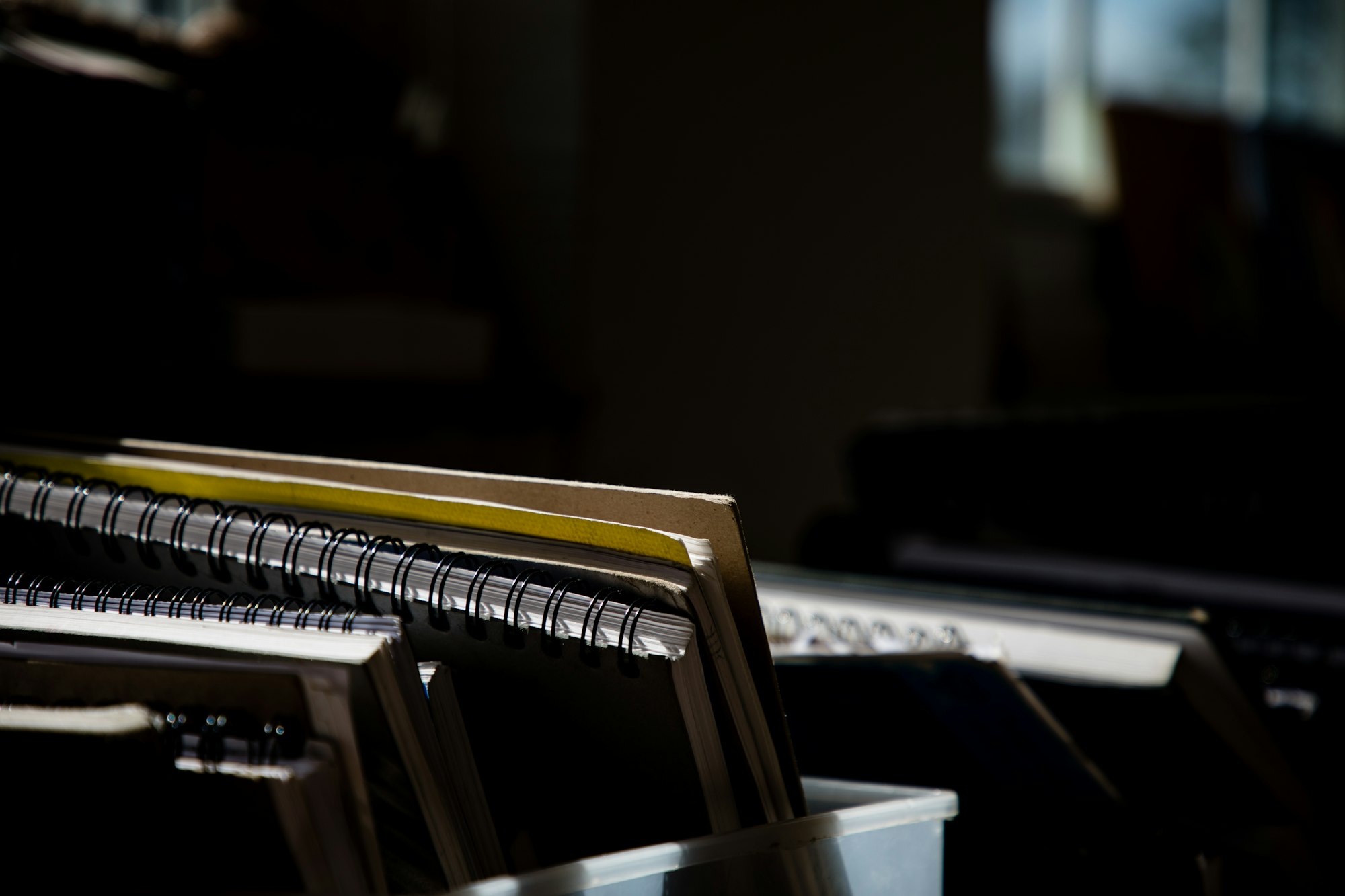
In your goal to find the best instructor for you, you need information. You're actually conducting an interview.
You're looking to find the best person for the job of teaching piano lessons to you or your child.
Interviewing a Piano Teacher: What To Ask

What method do you teach? Even if you live in a small town, chances are there are piano teachers that use several different piano methods. Most teachers still teach the traditional classical method.
Others teach newer methods such as Simply Music and Suzuki. Still, others may be classically trained, but choose to teach specific styles such as jazz, new age, or worship (church music).
What style you choose depends on your goals!
What's your musical background?
Notice I didn't say, "What are your credentials?" or "How long have you been teaching?"
I think it's much more important to find a teacher with a genuine love of music and teaching. Your prospective piano teacher may be just out of college, or just started teaching after having another career - so she may not have years of experience. But she might still be a wonderful teacher!
What is your teaching style?
Some teachers have a curriculum and requirements for practice that are strictly followed. Others have a less structured teaching style.
What motivates you? What motivates your child?
What kind of parental involvement do you want?
Most teachers welcome parents observing lessons, especially initially. Some methods encourage full parental involvement in each lesson. Find out what your prospective piano teacher expects of the student and the parent.
Being involved in the lesson process can dramatically improve your child's success and motivation! Ask the teacher how you can help, what to keep an eye out for, and how to encourage practicing.
Can we visit your studio and/or have an introductory lesson?
At my studio, I have free introductory sessions to introduce people to myself, the studio, and the method I teach. They get to hear music, have a mini-lesson, and ask questions.
It's important that you meet your prospective piano teacher and see the studio (or home) before you begin lessons. The best learning happens when you or your child are comfortable in the learning environment and have good communication with your teacher!
Interviewing a Piano Teacher...The Formalities
Once you've discovered a piano teacher you might like to work with, you can move on to the details of piano lessons.
What do you charge for lessons?
The cost of piano lessons varies. It depends on your teacher's experience and whether you live in a city or rural area. Even within a small town, prices vary widely. Don't be a piano lesson bargain shopper! Excellent instruction does have a price tag. This is how your teacher makes a living, and lessons are an educational investment.
Also ask whether your teacher requires payment weekly, monthly, or by the school semester. Different teachers will have different policies.
What is your attendance/cancellation policy?
Unfortunately, we live in a world where people are simply less honest - and less respectful - than they used to be. Many teachers, including myself, have had to become more strict about lesson attendance.
Most teachers do have a cancellation and make-up lesson policy. Make sure you clearly understand and agree to the policy before you begin lessons.
What are your studio rules?
Depending on whether your teacher uses her home or an office to teach, she may have specific instructions for her students. One of my previous teachers asked that we take off our shoes - to keep her house clean! I don't allow gum or candy and ask students to wash their hands before lessons begin.
Above all? Be courteous.
You're on your way!
Embarking on piano lessons can exciting, scary, fun, and intimidating, all at the same time! But finding the perfect piano teacher can make all the difference.
Average Cost of Piano Lessons
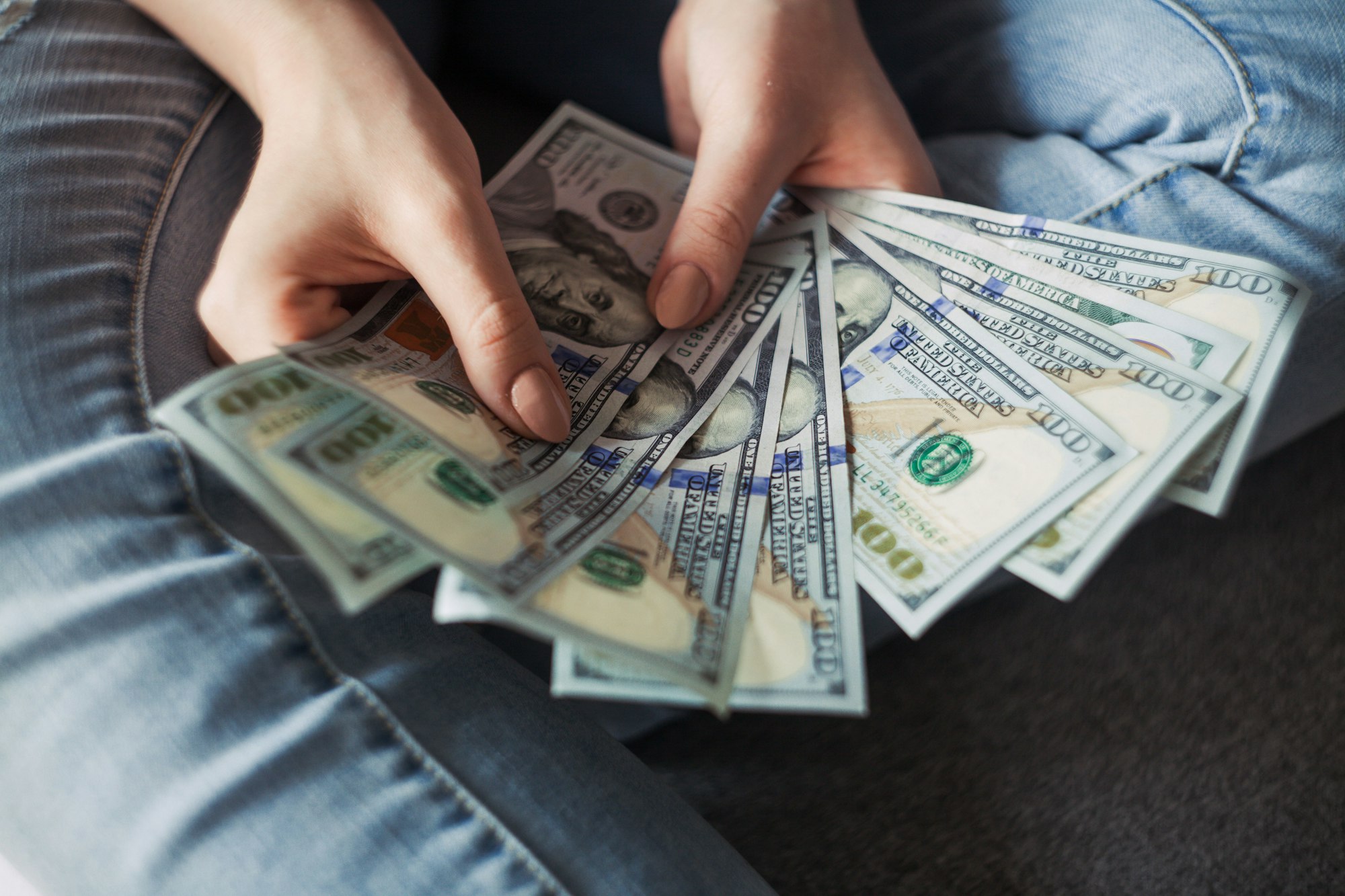
First, remember that while teaching piano usually comes out of a love for playing and sharing music and the piano, piano teachers do have to make a living. The cost of your piano lessons isn't only for the actual time you are with your teacher.
The amount of time I spend in lesson preparation, transposing or arranging songs, finding great music, preparing games, and prizes -- is huge. All good teachers do the same.
Your teacher also spends time and resources on...
- teaching tools, games, incentives, and music
- tuning and repair of teaching instruments
- evaluation of teaching books and methods
- his/her own further education and training
Not to mention rent, heat, telephone, and all the rest of the overhead of running a studio. At the end of the day, your teacher would actually like to take home a salary!
OK, I'll get off my soapbox now... :-)
Next, realize that this isn't the time for bargain-hunting. It's one thing to save a few bucks by searching for the lowest price on groceries or car tires, but price shouldn't be your first consideration in finding a teacher.
You want to find a teacher that's right for you -- in style, method, experience, and personality. You might find that in the less expensive range, of course! But let the teacher herself (or himself) be your first priority, and the cost a secondary one. A poor teacher is no bargain.
The cost of piano lessons depends on where you live.
I can tell you that in a smallish town of about 30,000 people, piano lessons range from $14.00 per half hour at the local piano store to over $40.00 per half hour from local professionals.
If you live in a large city, you can expect to pay more.
If you live in a very small town, you might find the cost of piano lessons is a bit less.
Other Costs of Private Piano Lessons
Be aware that the cost of piano lessons doesn't include lesson books and materials. Those will be extra. Piano music is a great investment, though -- like a book you keep forever. Even the simplest songs can be used again and again for different kinds of study.
Your teacher may also charge a fee to cover the costs of holding recitals, which can be pricey and take a great deal of time and organizational effort.
Some teachers also charge fees for late payment or missed lessons/late cancellations. Be sure to get clear on your teacher's studio policy when you start lessons.
You'll also need to factor in the costs of renting or buying a piano (or keyboard, to start), piano delivery, and pitching and tuning.
And, of course, you'll want to set up your piano practice room so that you can practice efficiently.
The real cost? Priceless! :-)
Music education is about so much more than simply playing an instrument!
Piano lessons teach long and short-term goal setting, responsibility, and focus. Not to mention motor skills and hand-eye coordination! And having a one-on-one relationship with a good teacher can be such a joy for kids and adults alike.
Who else gives you such detailed attention and encouragement every single week?
The appreciation of the world of music, the history of music, and other musicians is so beneficial. Even if you or your child eventually decide that playing the piano isn't what you want to pursue, the time spent in lessons has such value!
Considering all the benefits the cost of piano lessons really is a bargain. :-)

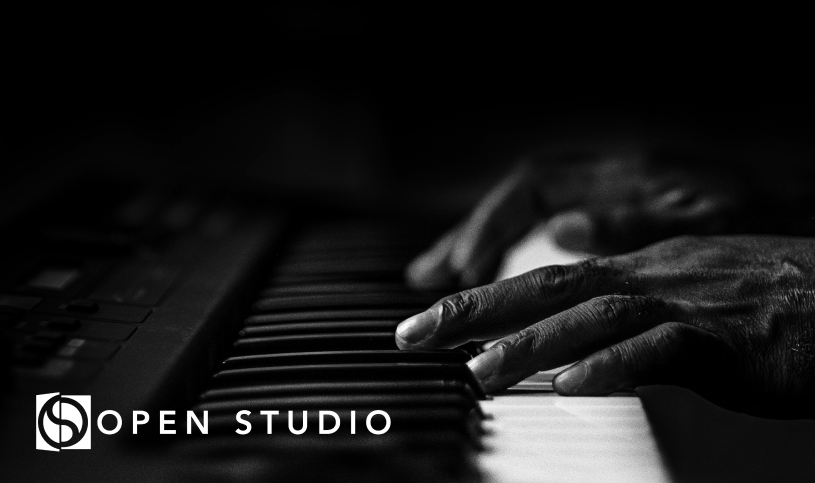
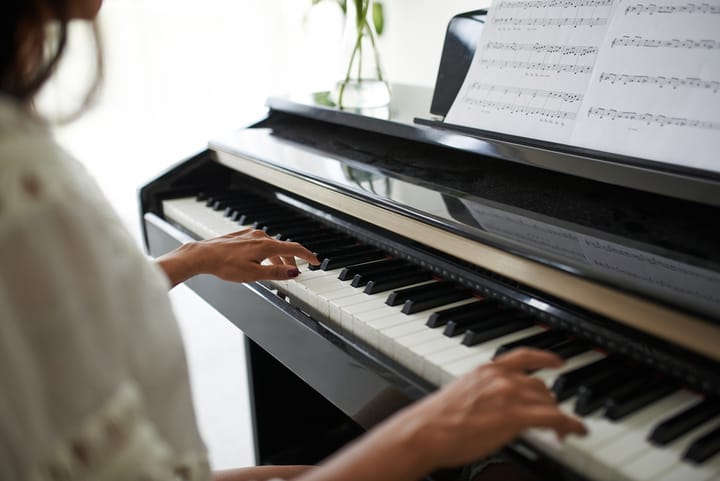
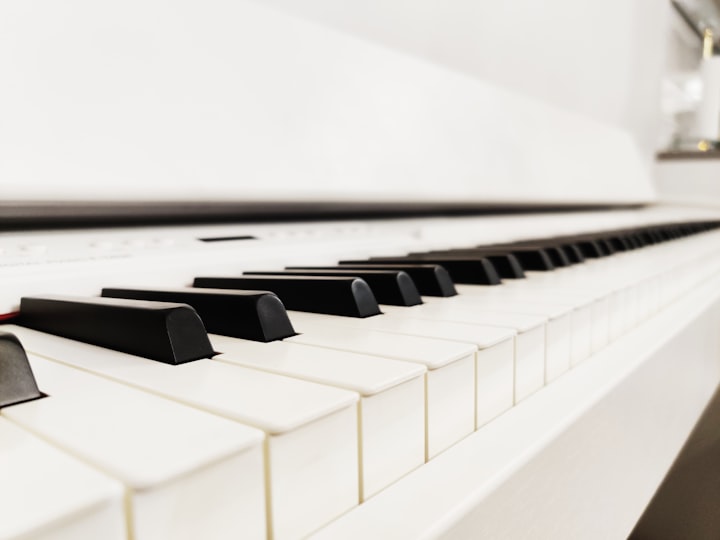
Comments ()